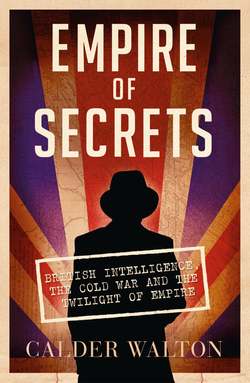Читать книгу Empire of Secrets: British Intelligence, the Cold War and the Twilight of Empire - Calder Walton - Страница 24
3 ‘The Red Light is Definitely Showing’: MI5, the British Mandate of Palestine and Zionist Terrorism
ОглавлениеA bomb outrage to have any influence on public opinion now must go beyond the intention of vengeance or terrorism. It must be purely destructive.
JOSEPH CONRAD, The Secret Agent1
I have always been clear that the best method of dealing with terrorists is to kill them.
GENERAL SIR ALAN CUNNINGHAM, High Commissioner for Palestine and Transjordan2
Despite all of its wartime successes, the British secret state did not emerge from the Second World War in a strong position. Reports from the ‘high table’ of the British intelligence community, the Joint Intelligence Committee (JIC), stated frankly that it had little available intelligence on its ‘new’ enemy, the Soviet Union. The JIC’s immediate post-war reports are revealing as much for what they do not say as what they do. Although it seems incredible with hindsight, between December 1944 and March 1946 – that is, at precisely the time when we would imagine that the JIC would have been focusing on the re-emerging Soviet threat – the JIC was totally silent on the Soviet Union. Taken as a whole, JIC reports from this period do, however, shed light on the origins of the conflict that would shape the whole second half of the twentieth century: the Cold War. We can now see that in the immediate post-war period, during the transition between World War and Cold War, the JIC was relatively optimistic about Britain’s future relations with Moscow. It was certainly not expecting a war to break out between Britain or its allies and the Soviet Union.3
However, by 1946 JIC reports, which were circulated to Britain’s leading military figures, a small circle of cabinet ministers and top civil servants, had begun to take a much more pessimistic and hard-line approach, and were warning that a war with the Soviet Union could erupt as the result of a series of mutual miscalculations between Western governments and Moscow. This supports the most recent research on the origins of the Cold War, offered by historians such as John Lewis Gaddis and former intelligence practitioners such as Gordon Barrass, which suggests that it arose essentially because of conflicting signals given by the West and the East, and a range of mutual misinterpretations.4
